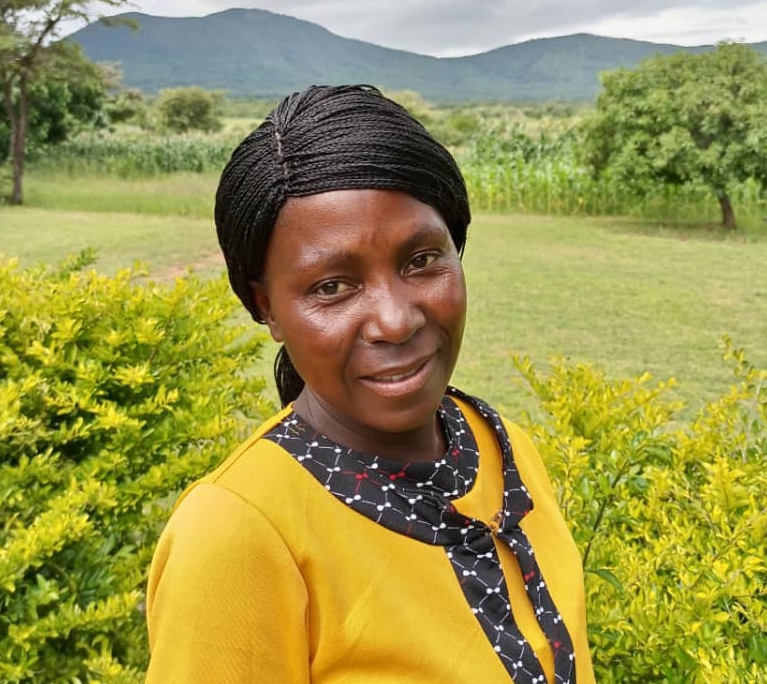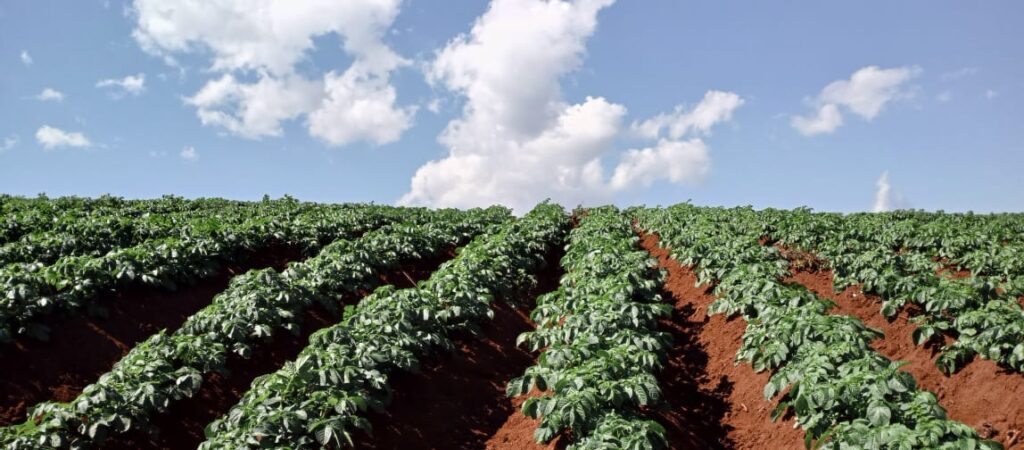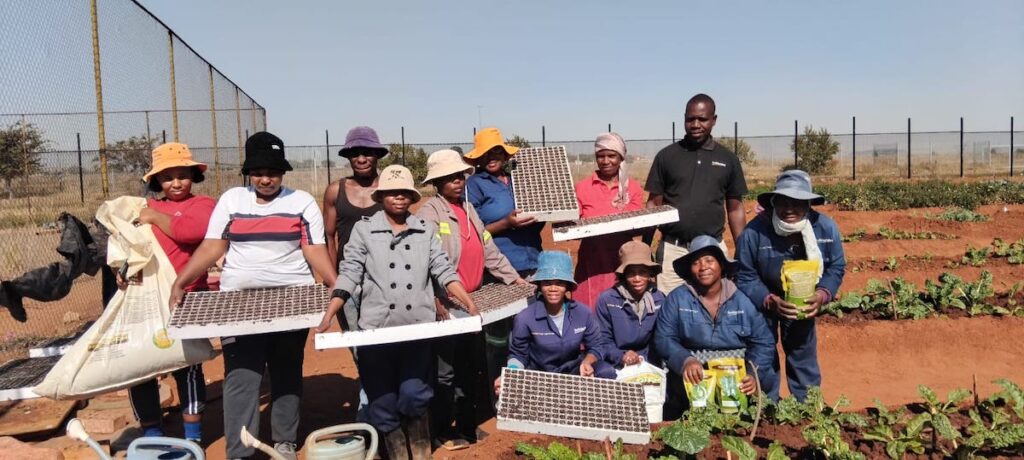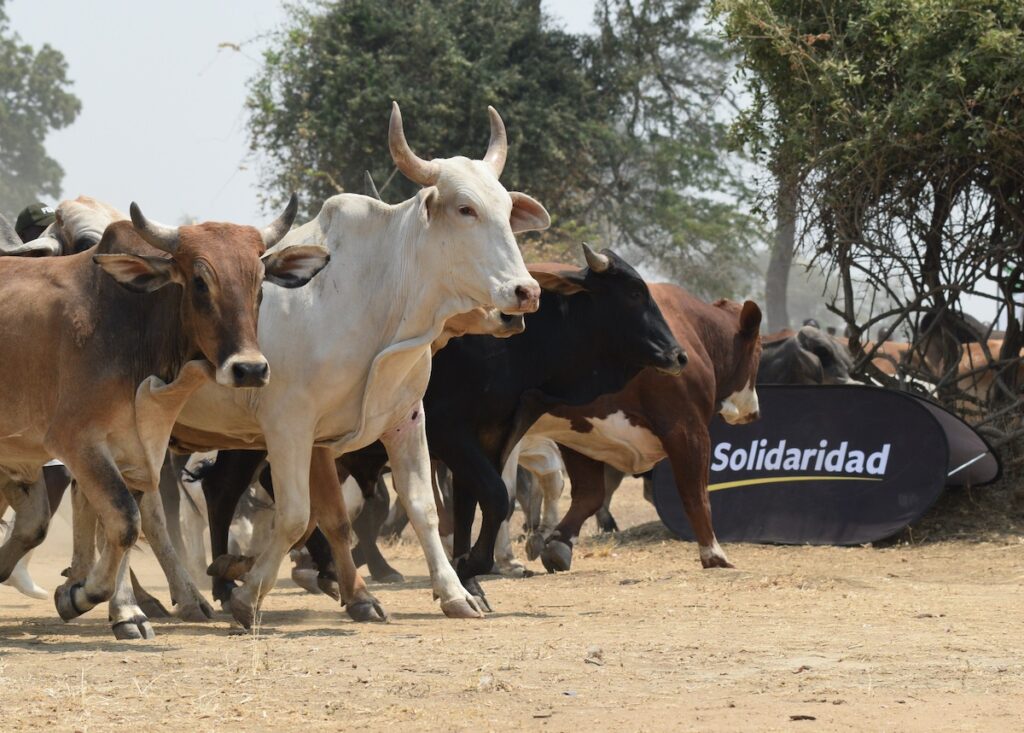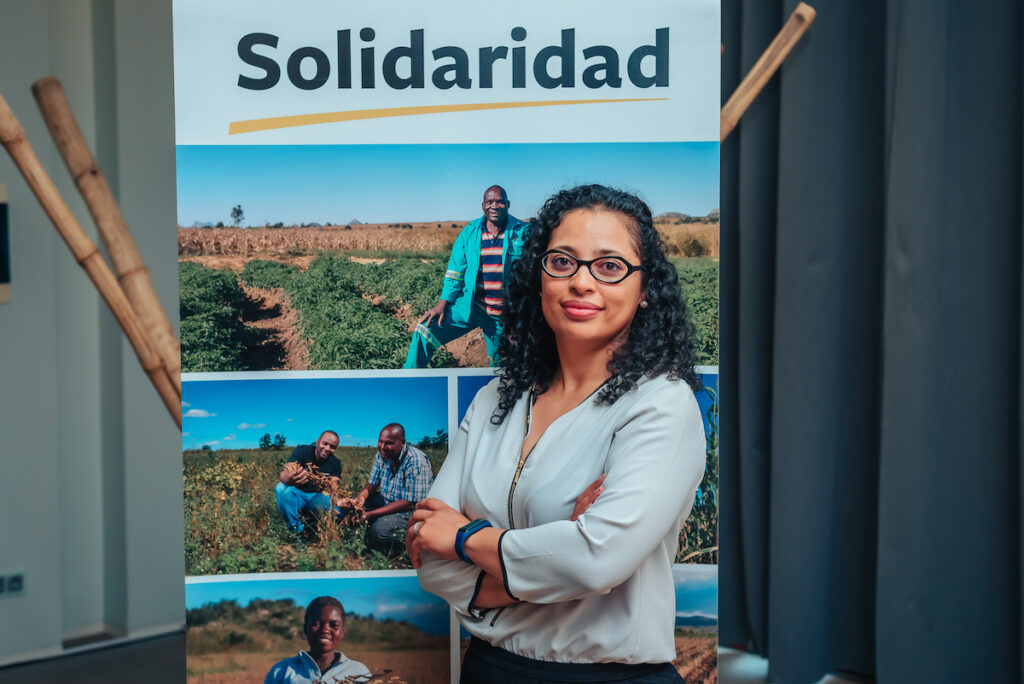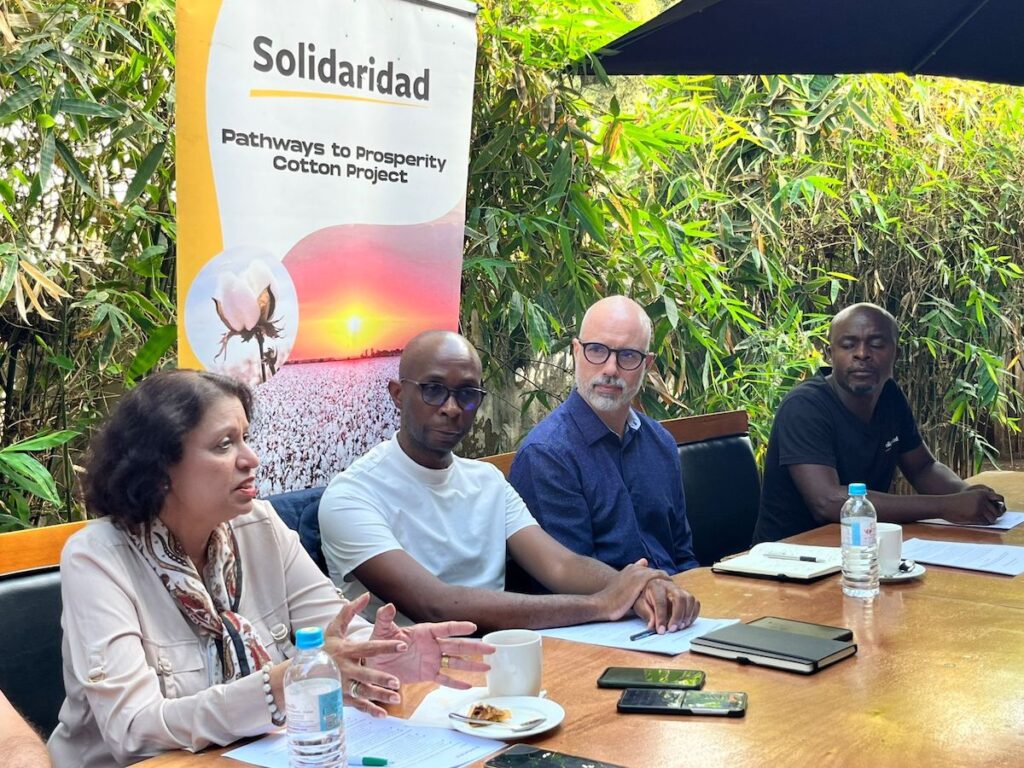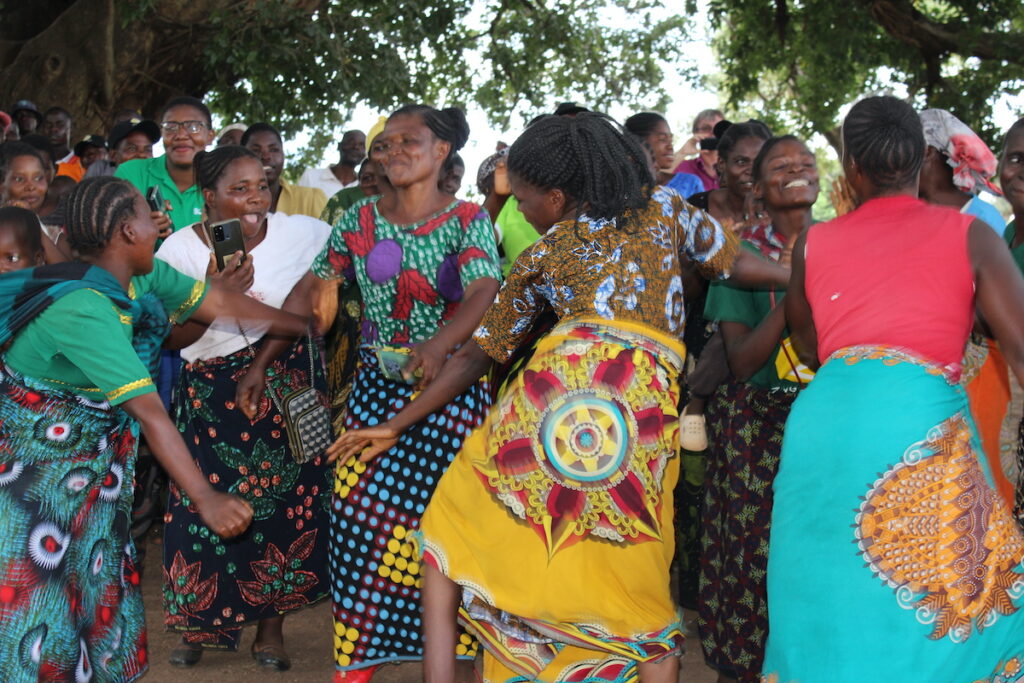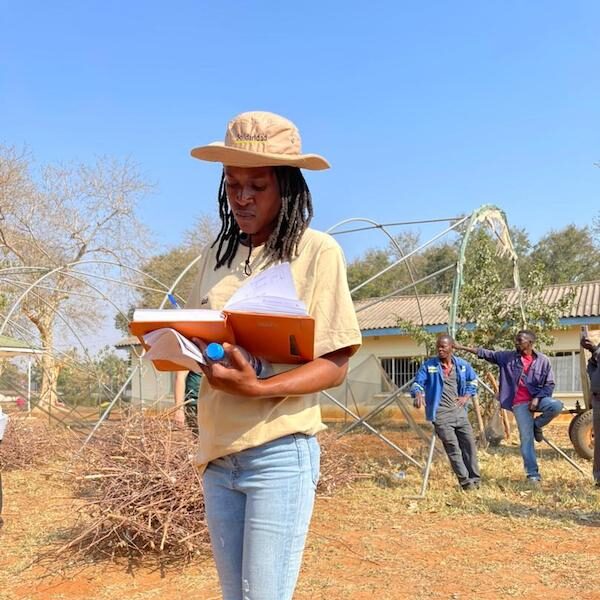Ms. Ethel Lungu, of Milanzi village, Petauke district, is one of Solidaridad’s registered farmers in the poultry gender inclusive programme, K’fuya. The objective of this project is to reduce women’s vulnerabilities through increased economic empowerment and resilience, especially for rural women and girl poultry farmers who have been most affected by the impacts of Covid-19, loss of income and climate change in Eastern Province, Zambia.
We have suffered a lot. We lacked money to take the children to school. Through keeping and selling SASSO chicken and the knowledge I received from Solidaridad, my children have been able to get food and also go to school. I have also constructed a better poultry house.
Ethel Lungu, Poultry Farmer
In 2021, the mother of five was selected and trained on soybean production under the ongoing Soy Practice for Change Programme, which aims to support farmers in the soy value chain. That same year, Ethel was also selected as a Mother Unit beneficiary and received training on poultry keeping specifically for the SASSO chicken breed. The K’fuya poultry project commenced as a pilot project in 2020 promoting the SASSO breed in the Eastern part of Zambia. This proved successful and the project was implemented for a further 4 cycles to date.
After the training and based on the project approach, Ms. Ethel subsequently received 300 chicks with the aim of looking after them for 6-8 weeks and selling to smallholder farmers. These farmers can either keep the chicken for meat or for egg production (home consumption or a source of income). Currently, she is the only farmer keeping SASSO chicken in her town, making her business very lucrative.
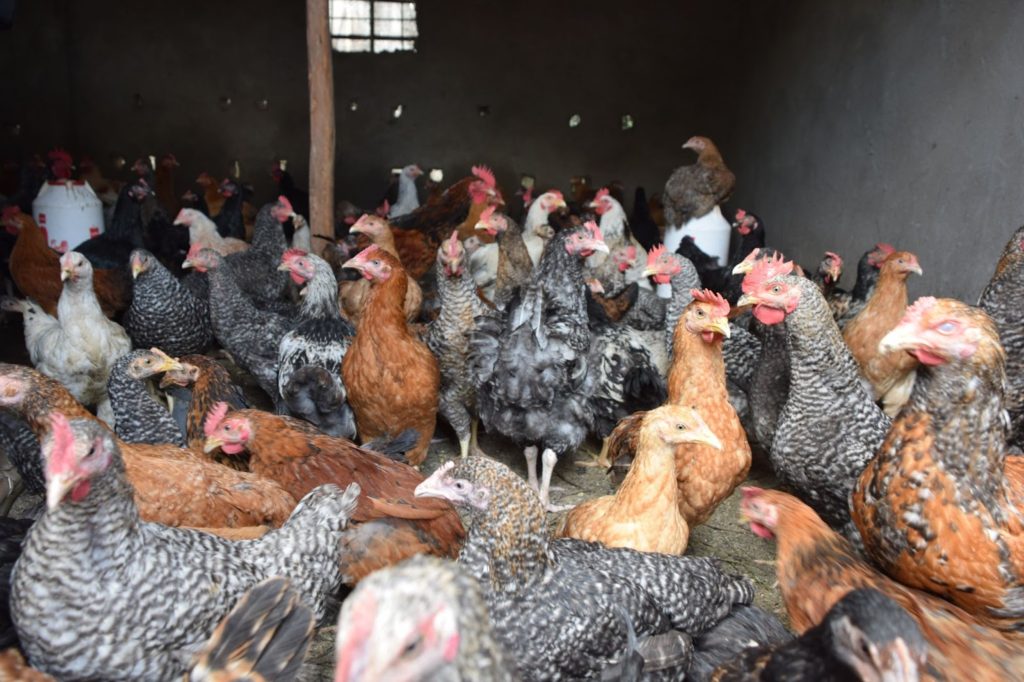
Prior to Solidaridad’s SASSO poultry project, Ms. Ethel used to rear local chickens. However, in her words “local chickens are good but I was not getting enough money for the family. SASSO chickens are much better.” With the 300 chicks that she had initially received, Ms Ethel was able to sell 264 chicks and chose to keep six for egg laying purposes to support her household consumption. She used the income to buy 300 more chicks independently and during the four cycles of the project, she bought another 300 chicks from the project at a 50% subsidized rate. In order to sustain the growth of her business, Ms Ethel has since invested in a bigger chicken shed.
With co-funding from Crossroads International, Solidaridad Southern Africa was able start another cycle of the SASSO chicken project with the aim of economically empowering selected women and mentoring and coaching young girls in the poultry sector as well as in various areas such as financial literacy, leadership skills, life, home management and social skills. Upon receiving this news, Ms. Ethel could not hide her joy. She concluded the interview by saying, “I am very happy and I hope that with the new project I will be able grow my business and ultimately to take my children to college.” With the right support, both in resources and capacity building, women do thrive in agriculture.

